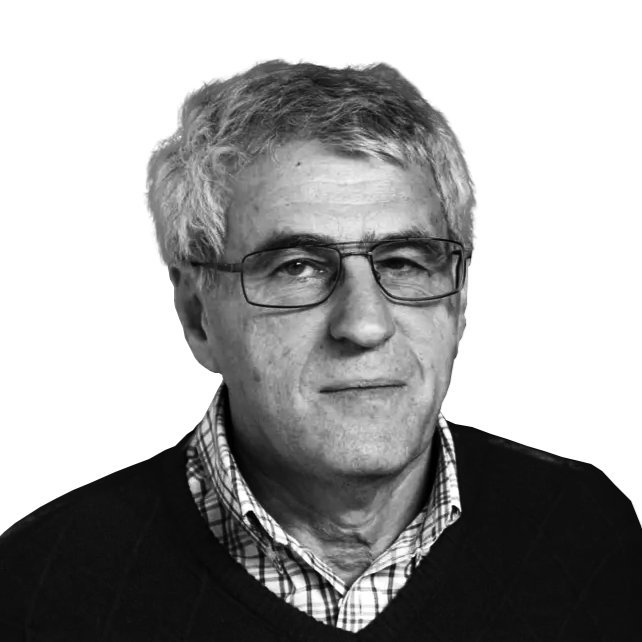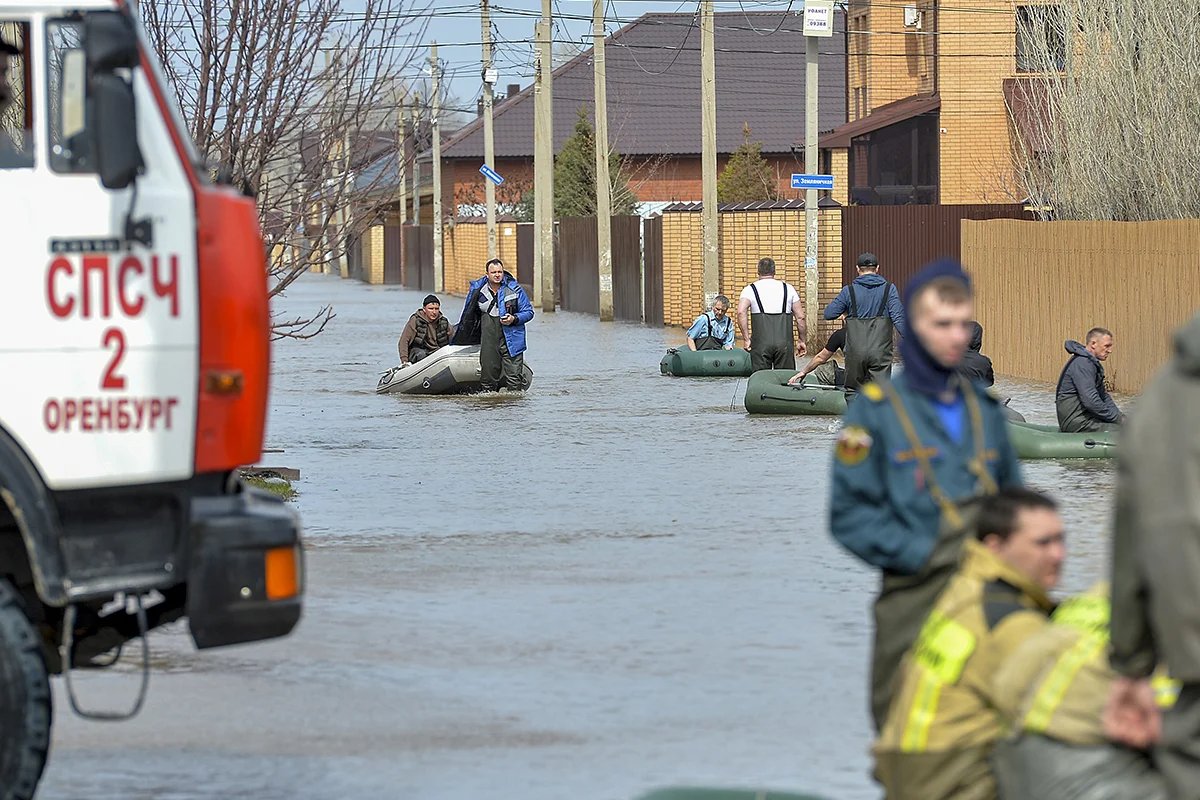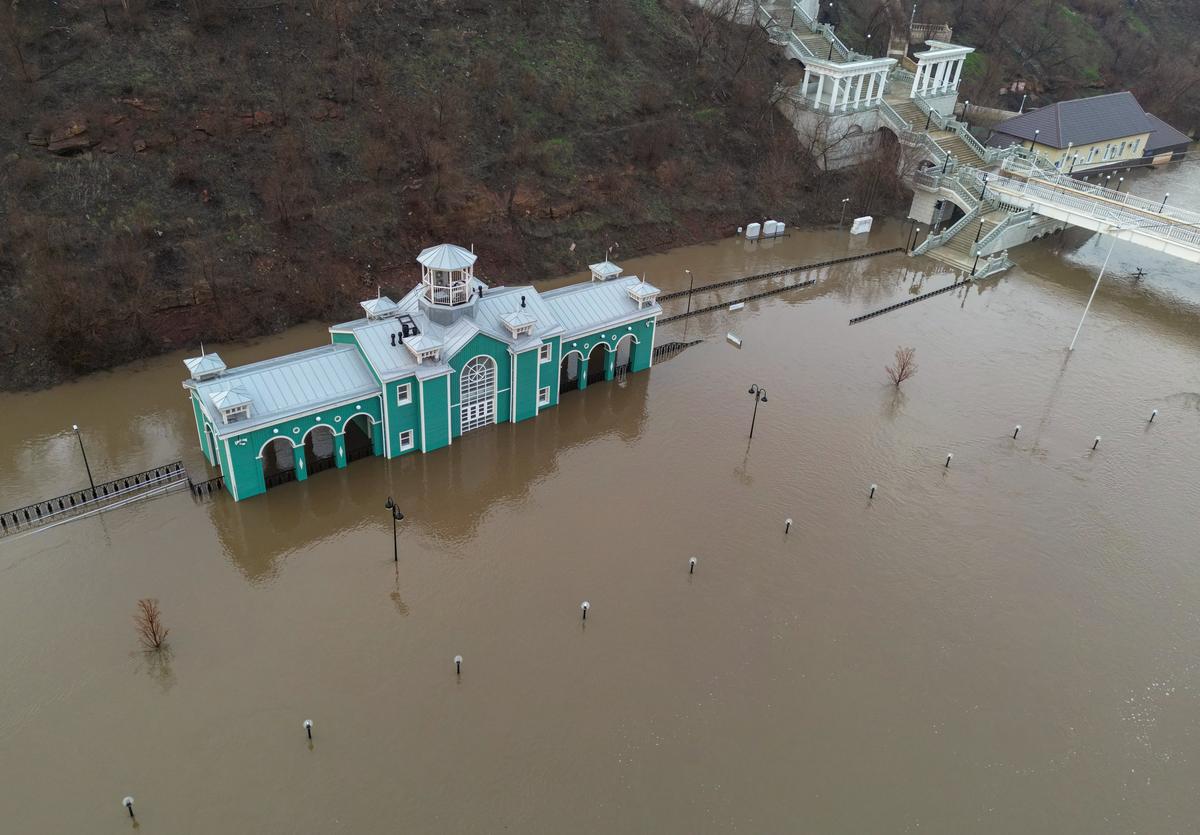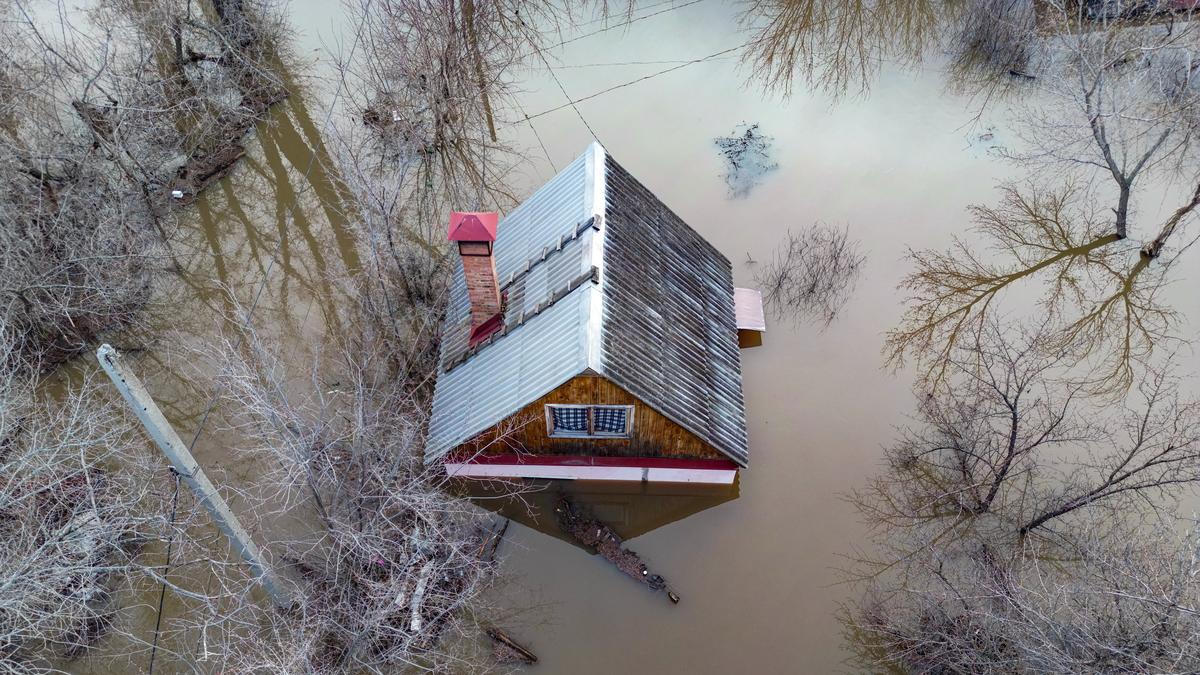The worst flooding seen in Russia for decades has left much of the Orenburg region under water. Why, people ask, didn’t Putin come and see the devastation for himself? Why doesn’t the state step in, rather than shirk its responsibilities by distributing utterly derisory handouts?

Leonid Gozman
Russian opposition politician
But why, I ask in response, should he come? Why should the state help? I mean, what really happened here? Was this the first time this sort of thing occurred? Last month saw the Crocus City Hall attack, and a couple of months before that people were left to freeze without heating in the depths of winter. And there’s a long, long list of other catastrophes that have happened on this regime’s watch.
As for why he didn’t come and see Orenburg, it’s because he doesn’t go anywhere. Don’t be surprised that he keeps tabs on the situation from afar — after all, that’s how it’s always been. Does anyone remember seeing him anywhere near the Moscow apartment building that was blown up in 1999 (and who did that, again)? Nor did he go to Beslan, nor to the site of the Nord-Ost Theatre siege.
As Peskov put it, going to Crocus would have been ill-advised, and just because you can’t see tears on the president’s face, that doesn’t mean he’s not in pain. He’s deeply affected. Peskov said so, and who could doubt it! I mean, at least the state didn’t kill anyone this time. A city just flooded.
Putin seems not to appreciate that publicly expressing solidarity with the victims of major tragedies forms part of his official duties.
He evidently hasn’t understood that even if his empathy with the murdered, the flooded or the freezing is genuine, his decision not to travel to the scene of the tragedy in question suggests otherwise.
Just why the state doesn’t intervene in these situations is a much more interesting question, however, and one that applies beyond Orsk. Indeed, the answer reveals the state’s true colours. The fact is that people in Orsk, like those affected by other disasters, are unworthy of state assistance, having nothing to offer in exchange. They are poor, and nobody serves the poor.
They are not voters, because the country doesn’t hold elections. That means they are unable to hold officials to account, as they can’t threaten to vote against a particular politician or party in the next election if they don’t receive the help they require.

First responders evacuate local residents from a flooded area of Orenburg, on 12 April 2024. Photo: Stringer / EPA-EFE
They don’t have the media to question the reputation of those who leave them in the lurch. The opposition press has been shut down, and the state press only writes what it’s told to. And there are no reputations to worry about anyway.
They’re not even taxpayers. I mean, they do pay taxes, and plenty of them, but neither regional leaders nor the state, and its ability to wage war, are dependent on their taxes. They are not a source of wealth for the state, as they should be, but rather a burden, an object of charity — they need to be fed, pensions must be paid, schools and clinics have to be maintained. If they all just disappeared somewhere along with their taxes, the state would find that easier.
The only thing the state needs is for them to multiply. But there’s quite a wait from conception to the onset of military age. It feels like a waste for the authorities to invest today’s assistance in such far-off goals. There are already benefits given to those who have multiple children. Surely that’s enough!
This state has everything upside-down. The well-being and career of any official, whether “elected” or appointed, depends not on the people at the “bottom” — the citizens, the people, the voters — but the people at the top.
Orenburg Governor Denis Pasler staying in his post isn’t contingent on the people who supposedly elected him, it’s contingent on the president who appointed him.
So you can be rude to the plebs — “put your phones away!” Pasler demanded at a meeting with locals angry about the state response to the emergency — but stay in the president’s good books by reporting back as required. For politicians both at the regional and federal level, what matters is not a cross on the ballot sheet, but the good will of the authorities.
In any other system, everyone in the country would now know the name of Orenburg’s deputy in the State Duma, as they’d be delivering aid personally, saving cats and rescuing people round the clock to prove themselves worthy of re-election. But the actual deputy was probably busy doing something more important.
It is difficult for Russians to accept that they don’t have a state — a structure at least vaguely accountable to them and responsible for their well-being and security. Nobody in all those fancy halls and offices cares about how the people live. There’s nobody they can rely on. Russians, like everyone else on Earth, need a state. States exist for a reason. But not in Russia.
The disaster in the Orenburg region is simply a non-event as far as the state is concerned. Yes, TV showed serene pictures of streets submerged under water — basically Venice! — but was silent on more terrible matters, such as flooded cemeteries and the threat of epidemics. Putin saying the flood needed to be dealt with got 10 seconds of airtime. And then it was straight onto a story about flying over the area with an icon! And you have the cynicism to say that nothing is being done!
The only tragedies the state still pays attention to are terror attacks. Not, I don’t think, because people die, but because they’re a slap in the face to the security forces and the president that emerged — if not very far — from them. And if they didn’t carry out the terrorist attack themselves, they feel humiliated.
The state is intrinsically incapable of feeling responsibility for anything. That handful of pathetic characters will be the sole ones held guilty for the attack on Crocus City Hall. There’ll be no mention of the FSB, which failed in its duties once again, or the owners of the venue, who apparently cut corners with fire precautions.

Flooding in Orenburg on 10 April 2024. Photo: Stringer / EPA-EFE
Governor Pasler has stressed that the dam in Orsk had been built under his predecessor. Maybe we should put any questions we have to him. Maybe his predecessor was out of his depth, and that’s why it collapsed, but the dam got built on his watch, which means the state — the state that Governor Pasler represents — is now responsible for everything, including compensating the people who have lost their homes.
The state — or this poor excuse for one, at least — is so uninterested that it’s not even doing what it knows how to do: keep people under control. For once, this is actually necessary to protect people’s homes from gangs of thieves. But the guardsmen are busy protecting the governor and his people from outraged citizens, and now they can’t evacuate their homes for fear their property will be looted. Again they will be told that they have nobody but themselves to blame.
There is no state, just a group of people exercising power. However, their interests are infinitely far removed from the problems of the overwhelming majority of the country’s population. The authorities only have time for bombing Kharkiv and picking fights with the LGBT community. And they’ll ignore the next catastrophe in much the same way they are blind to what’s currently happening in the Orenburg region.
The only truly surprising thing about the current floods is that people keep expecting the authorities to take an interest at all.
Views expressed in opinion pieces do not necessarily reflect the position of Novaya Gazeta Europe.
Join us in rebuilding Novaya Gazeta Europe
The Russian government has banned independent media. We were forced to leave our country in order to keep doing our job, telling our readers about what is going on Russia, Ukraine and Europe.
We will continue fighting against warfare and dictatorship. We believe that freedom of speech is the most efficient antidote against tyranny. Support us financially to help us fight for peace and freedom.
By clicking the Support button, you agree to the processing of your personal data.
To cancel a regular donation, please write to [email protected]

